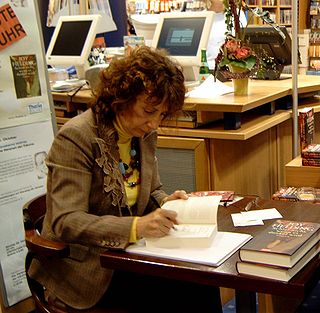A Quote by Umberto Eco
I write stories about conspiracies and paranoid characters while I am, in fact, a very skeptical person.
Related Quotes
Yes, there is a conspiracy, in fact there are a great number of conspiracies that are all tripping each other up. And all of those conspiracies are run by paranoid fantasists and ham-fisted clowns. If you are on a list targeted by the CIA, you really have nothing to worry about. If however, you have a name similar to somebody on a list targeted by the CIA, then you are dead.
As a rule, I am very skeptical of tying books to anniversaries. I don't think readers care. I also feel that it just about guarantees that somebody else will be writing a book on the same subject, but being a former journalist, I'm always interested in, like, why write about something today? Why do it now?






































